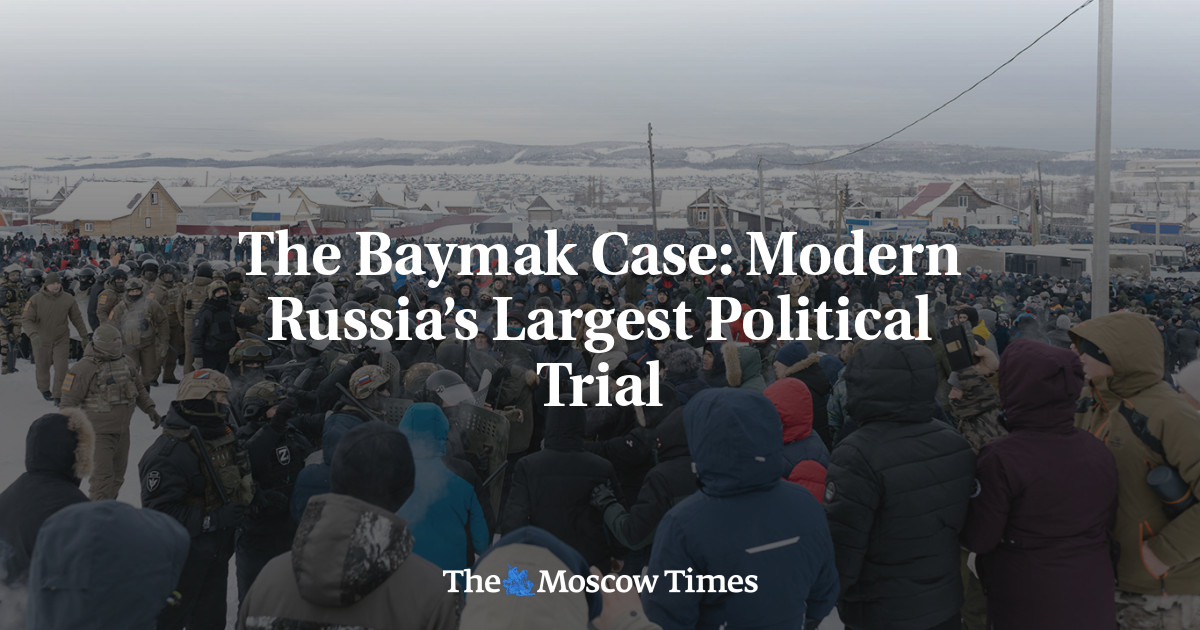Former President of Syria Bashar al-Assad said Monday that he fled Syria only after Damascus had fallen, and claimed that Moscow “requested” he be evacuated to Russia.
An Islamist-led rebel alliance, led by Hayat Tahrir al-Sham (HTS), launched a lightning offensive from its northwest Syria bastion on November 27, swiftly capturing major cities from government control and taking the capital on December 8.
“My departure from Syria was neither planned nor did it occur during the final hours of the battles, as some have claimed,” said a statement on the ousted president’s Telegram channel.
“I remained in Damascus, carrying out my duties until the early hours” of Dec. 8, it added.
“As terrorist forces infiltrated Damascus, I moved to Latakia in coordination with our Russian allies to oversee combat operations,” the statement said, adding that he arrived at the Hmeimim base that morning.
“As the field situation in the area continued to deteriorate, the Russian military base itself came under intensified attack by drone strikes,” it said, and “Moscow requested that the base's command arrange an immediate evacuation to Russia on the evening” of Dec. 8.
Five former officials previously told AFP that hours before rebel forces seized Damascus and toppled Assad's government, the former Syrian president was already out of the country.
The officials said that the night before, Assad had even asked his close adviser to prepare a speech—which the ousted leader never gave—before flying from Damascus airport to Russia's Hmeimim air base, and from there out of the country.
“When the state falls into the hands of terrorism and the ability to make a meaningful contribution is lost, any position becomes void of purpose,” the statement from Assad added.
Though Assad has long branded any who oppose his rule as “terrorists,” Hayat Tahrir al-Sham (HTS), the group that led his overthrow, has also been proscribed as a terrorist organization by the U.S. and other Western governments.
With its roots in a former branch of Al-Qaeda in Syria, HTS broke with the jihadist group in 2016 and has sought to soften its image.
In recent days, both the U.S. and U.K. have established contact with the group, while the UN has said it could remove HTS from its terrorist list if the post-Assad leadership proves its social and political inclusivity.
A Message from The Moscow Times:
Dear readers,
We are facing unprecedented challenges. Russia's Prosecutor General's Office has designated The Moscow Times as an "undesirable" organization, criminalizing our work and putting our staff at risk of prosecution. This follows our earlier unjust labeling as a "foreign agent."
These actions are direct attempts to silence independent journalism in Russia. The authorities claim our work "discredits the decisions of the Russian leadership." We see things differently: we strive to provide accurate, unbiased reporting on Russia.
We, the journalists of The Moscow Times, refuse to be silenced. But to continue our work, we need your help.
Your support, no matter how small, makes a world of difference. If you can, please support us monthly starting from just $2. It's quick to set up, and every contribution makes a significant impact.
By supporting The Moscow Times, you're defending open, independent journalism in the face of repression. Thank you for standing with us.
Continue
![]()
Not ready to support today?
Remind me later.
 (1).png)
 1 week ago
7
1 week ago
7













